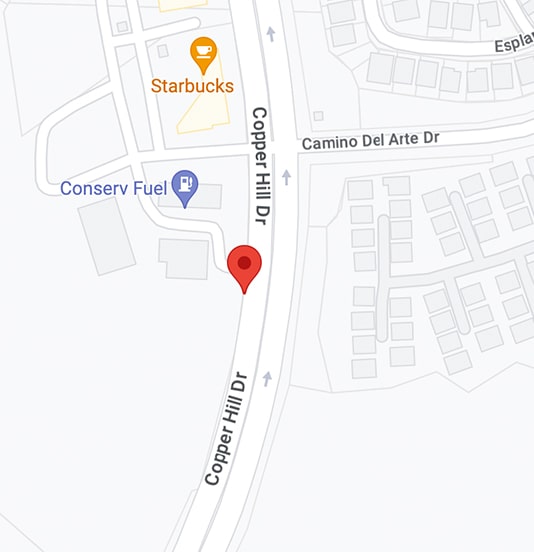Scheduling frequent dental appointments with your dentist is key to staying on top of your dental and oral health. In addition to keeping your teeth, gums, and mouth healthy, dental appointments could also help you avoid other health issues.
During your routine dental appointments, your dentist can identify oral and dental health issues before they become severe and problematic. Unfortunately, many people have dental anxieties, and every dental appointment can be overwhelming and stressful. However, it does not have to be like that because most dental procedures are pain-free and non-invasive, all thanks to modern technology.
Proper preparation and understanding the dos and don'ts before your dental appointment can help minimize your anxiety and make each visit to your dentist worthwhile. If you are wondering what you should do and what to avoid before your trip to a dentist, this article is yours.
Why Do I Need to Prepare Myself Before a Dental Appointment?
Think of your trip to the dentist as a significant event or meeting that you have to prepare for to ensure everything is successful. Just like you would collect everything you need and organize your thoughts for the event or meeting, preparing yourself thoroughly for your dental visit can help make your time with your dentist worthwhile.
In a nutshell, preparing yourself for a dental visit is essential for the following reasons:
- It helps you feel ready and confident for the scheduled procedure.
- It enables you to avoid the last-minute stress.
- It helps your dentist have a clear and precise view of your dental and oral health.
Generally, preparing for your dentist appointment means fewer unpleasant surprises and a better dental appointment experience.
An Overview of the Dos and Don’ts Before Your Dental Appointment
Before your dental appointment with your dentist, familiarizing yourself with the behaviors and habits that could affect the visit's success is vital. Below is an overview of the dos and don’ts before your dental appointment:
Dos Before Your Dental Appointment
Here are crucial tips on what to do before your dental appointment with your dentist:
-
Engage With Your Insurer
Before you check with your dentist to confirm your scheduled dental appointment, you should engage with your insurer to know whether your policy will cover the procedure. If your policy provides limited coverage or does not provide coverage for the scheduled appointment, you should speak with your dentist about available alternative payment methods.
Knowing what your policy covers can help you avoid unnecessary surprises during your dental appointment.
-
Confirm Your Scheduled Dental Appointment
Confirming your scheduled dental appointment beforehand helps ensure a smooth experience for you and your dentist. Ensure you talk with your dentist to confirm your appointment date and time to avoid unnecessary delays or no appointment.
Additionally, the appointment confirmation allows you to examine all specific pre-appointment guidelines that your dentist expects you to comply with for the success of the scheduled procedure. These instructions could include avoiding certain medications and fasting.
-
Gather all the Relevant Documents
If it is your first appointment with the dentist, you must prepare your relevant documents beforehand. Organizing the following documents beforehand ensures that your dentist has all the relevant information he/she needs before beginning your treatment. Examples of these documents include the following:
- Your insurance information — You should have your insurance card ready if you plan to use your insurance to cover your appointment and scheduled procedure cost.
- Your medical history — Preparing your medical record is important during a dental appointment with your dentist. The treatment your dentist will recommend for your unique oral or dental health issue could depend on your general health.
- Your payment details and ID — During a dental appointment, you should also remember to carry your payment method and a government-issued ID.
- Prescription medication — Before your dental appointment, your dentist will want to know the medication you are using because some medications could affect the success of the process. For instance, when scheduled for dental surgery, medications like Anticoagulants (blood thinners) could affect the blood clotting process, increasing the risk of excessive bleeding.
-
Mind What You Consume
As part of your dental appointment preparation, your dietary choices are also vital because they significantly influence the outcome of your dental visit. While you can eat before your dental appointment, your dentist will require you to adhere to strict terms and conditions.
If scheduled for routine clean-ups and check-ups, your dentist could allow you to eat light meals, primarily protein-rich foods like eggs. However, you must floss and brush your teeth after eating to wash away any lingering food particles in your mouth. Some of the factors to consider when determining whether you should eat before your dental appointment include the following:
Whether Anaesthesia Will Be Necessary
If the scheduled procedure requires the dentist to use anesthesia, having a snack or a light meal before your dental appointment is recommendable. Eating a snack or light meal gives you enough system sustenance during your procedure.
Whether Sedatives Will Be Necessary
If the scheduled dental procedure will require general anesthesia or sedatives to ease any possible pain or discomfort, your dentist will likely require you to fast before the procedure. Fasting helps minimize any potential complications or risks when under sedation.
If you have a scheduled dental appointment, the rule of thumb is to consult your dentist to know what you can and cannot eat. Some of your last foods to eat before your dental surgery appointment should include:
- Fruits and vegetables to improve your immunity.
- Lean protein to help in the repair of your body tissues after the surgery.
- Soft foods, like mashed potatoes and yoghurt, because they are easy to digest.
- Adequate water to keep you hydrated during the procedure.
-
Practice Excellent Dental and Oral Hygiene
Maintaining excellent oral and dental hygiene is vital when preparing for your dental appointment. These simple daily oral care practices can help make your teeth and mouth look their best, making your appointment with your dentist as comfortable and productive as possible. You can begin with thorough tooth brushing using a soft-bristled toothbrush and fluoridated toothpaste.
Ensure you thoroughly brush every part of your teeth and gums to remove plaque buildup and food particles that could interfere with the dentist's ability to perform a correct diagnosis. Dental flossing is vital to removing food stuck between your teeth's gaps. With a clear picture of your teeth and gums, the dentist can easily and precisely pinpoint your dental health issue for appropriate treatment.
-
Prepare for the Scheduled Dental Procedure(s)
If you are scheduled for a complex dental procedure, adequate preparation is key. Understanding what to expect during that procedure can help lessen dental anxiety and make your visit productive. As part of your preparation, you should do the following:
- Prepare questions to ask your dentist.
- Understand your post-treatment dental care.
- Set ample time for recovery.
-
Arrange Your Transportation Means
If your dental procedure requires general anesthesia or sedatives to prevent discomfort, you should arrange your transportation means after the appointment because their effects can affect your driving ability. In other words, the effect of sedatives and anesthesia could affect your mental ability to operate a vehicle like a cautious, sober driver.
Therefore, having someone trustworthy to drive you home is important before your dental appointment. In addition to preventing the likelihood of an accident, doing this gives you ample time to recuperate.
Don’ts Before Your Dental Appointment
Now that you know and understand what to do before visiting your dentist, understanding what to avoid is also vital for the success of the scheduled procedure and your overall experience. Explained below is what to avoid before a dental appointment with your dentist:
-
Avoid Smoking or Chewing Tobacco-related Products
Before your dental appointment with your dentist, you should avoid smoking or chewing tobacco-related products because doing so can leave an unpleasant smell in your mouth. In addition to causing bad breath, smoking or chewing tobacco-related products can mask your oral or dental health condition symptoms, causing an inaccurate diagnosis.
The effects of smoking can also cause slow healing after receiving your treatment and increase your risk of developing post-treatment complications and infections. For all these reasons, quitting your smoking habit is a wise idea.
-
Avoid Using Strong Mouthwash
Avoid using a concentrated mouthwash before your dental appointment because it can dry your mouth, causing gum irritation and complicating your oral examination. A concentrated mouthwash can also lessen symptoms of inflammation or infection, masking the severity of your oral and dental health issues.
For an accurate and precise diagnosis of your oral and dental health during your scheduled dental appointment, avoiding mouthwash is a wise idea, particularly those that contain alcohol.
-
Avoid Painkillers
It is not uncommon for some patients to use over-the-counter (OTC) painkillers like opioids before a dentist appointment because they want to ensure the procedure is pain-free. However, that is unwise because they can mask or conceal your underlying oral or dental health problem, making it challenging for the dentist to diagnose your issue accurately.
Certain OTC painkillers could also make your blood thin, increasing your risk of excessive bleeding if you are scheduled for a surgical procedure.
-
Avoid Consuming Alcohol
Alcohol consumption has several impacts on your body that could range from moderate to severe, depending on the amount you consume. Additionally, alcohol consumption could also cause depression, impairment, fatigue, dehydration, and mood imbalances during your dental appointment, affecting your overall experience.
The negative impact of alcohol consumption becomes worse if you are scheduled for any surgical procedure because it can increase your risk of excessive bleeding and prolong your rate of healing. Additionally, alcohol consumption could also affect how your body absorbs anesthesia, meaning you could require more of it than needed to numb your skin before dental surgery.
-
Avoid Using Makeup
While looking your best during a dental appointment, skipping make on that day is advisable. Avoid makeup, particularly around your mouth area, to ensure your dentist's or oral surgeon's working area is as clean and clear as possible for precise diagnosis and treatment.
Moreover, most dental procedures could require suction and water sprays, which could interfere with or wipe off your makeup. Going to your dentist makeup-free allows him/her to see the natural skin color around your mouth area for easy diagnosis of your dental or oral health issues.
Moreover, showing up for your dental appointment makeup-free helps prevent chances of allergic reactions or irritation during the procedure.
-
Avoid Chewing Mints and Gum
Sucking or chewing mints and gums before your dental appointment could mask bad breath, making it challenging for a dentist to determine whether the bad breath is due to an underlying oral or dental health issue.
Moreover, chewing gum could leave residues in your teeth, making it challenging for your dentist to clean them effectively.
-
Avoid Using Teeth Whitening Dentistry Products
Using teeth-whitening dentistry products before your dental appointment could complicate the treatment and irritate your enamel and gums, complicating your treatment. If you plan to whiten your teeth for a brighter smile, you should consult your dentist about the available options during the appointment.
-
Avoid Colored or Staining Foods
Certain foods, including raspberries, blueberries, red sauces, or beets, could stain or discolor your teeth, obstructing your dentist's view during your appointment. That means it could be challenging for your dentist to pinpoint early symptoms of tooth decay for early treatment.
Find a Seasoned Dentist Near Me
While it is natural to become nervous before a dental appointment, prior preparations can make you ready for the procedure and improve your experience at the dentist's clinic. If you are unsure about what to do and not do before your appointment, you should consult with your dentist.
However, understanding the above-explained tips could be a nice place to start if you do not know how to prepare for your dental appointment. If you have more questions about how to prepare for your dental appointment or have any dental or oral health issues, our dentists at Valencia Advanced Dentistry at Copperhill Smiles can help.
Call us at 661-775-7717 to schedule your appointment with our reliable dentists wherever you are in Santa Clarita.




